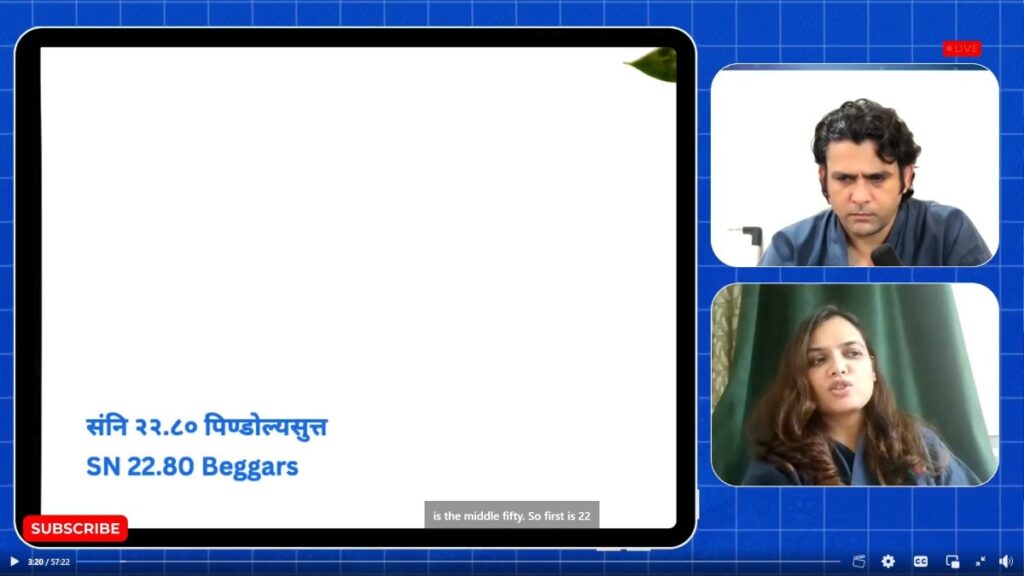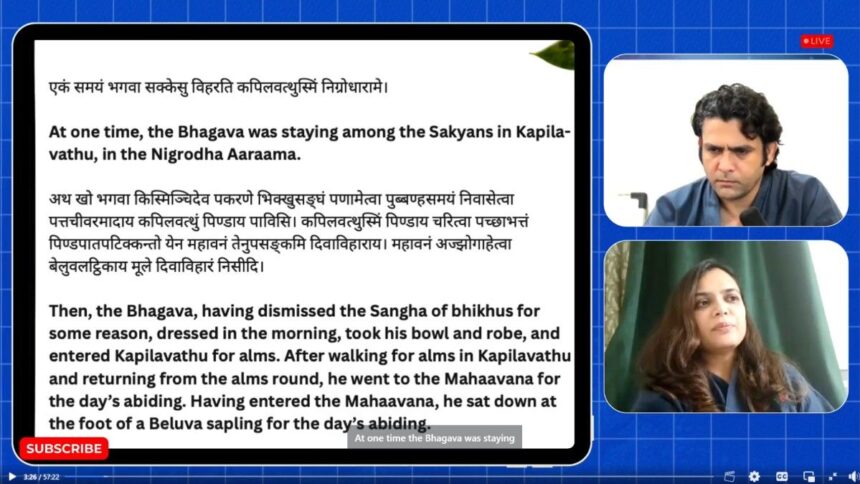Date: 06-09-2025
On September 6, 2025, Dr. Rajesh Savera conducted an insightful online session exploring Saṁyutta Nikāya 22.80, shedding light on one of the Buddha’s profound yet understated teachings.
The Setting of the Discourse
The sutta is set in Kapilavatthu, where the Buddha first dismisses the Saṅgha and enters the city alone for alms. This seemingly simple act is layered with meaning. By going unaccompanied, the Buddha demonstrates both humility and independence, reminding followers that the spiritual path does not depend on recognition or social approval.
After completing his alms round, the Buddha retires to the Mahāvana forest and quietly sits under a Beluva sapling, a moment that reflects both his contemplative nature and his unwavering commitment to practice.

The Intervention of Brahmā Sahampati
At this juncture, Brahmā Sahampati, the deity often depicted as encouraging the Buddha to share the Dhamma, appears once again. Recognizing the Buddha’s resolve to uplift struggling monks, he offers words of encouragement. This divine presence highlights the universal significance of the Buddha’s mission—not only valued among humans but also revered by celestial beings.
The Core Teaching
The Buddha then recalls the Saṅgha and delivers a profound message:
- While begging for alms may seem lowly in the eyes of the world,
- For those on the path of awakening, it is a noble and necessary practice.
Through this statement, the Buddha redefines dignity—not as status or possessions, but as the purity of intention and alignment with truth. Alms practice embodies renunciation, humility, and the breaking of attachment, making it an integral part of spiritual growth.
Conclusion
Dr. Savera emphasized that the heart of Saṁyutta Nikāya 22.80 lies in transcending societal norms and embracing true renunciation. The Buddha’s journey into the city alone, his quiet retreat in the forest, and his teaching on alms-giving collectively remind us that even the simplest actions, when rooted in mindfulness and wisdom, hold profound sacred value.
This sutta invites practitioners to look beyond external judgments and to honor the inner nobility of renunciation, recognizing that the path to liberation is built on humility, intention, and insight.
To Watch Full Session Click The Link Below
https://www.facebook.com/drsavera/videos/2206821533152892




